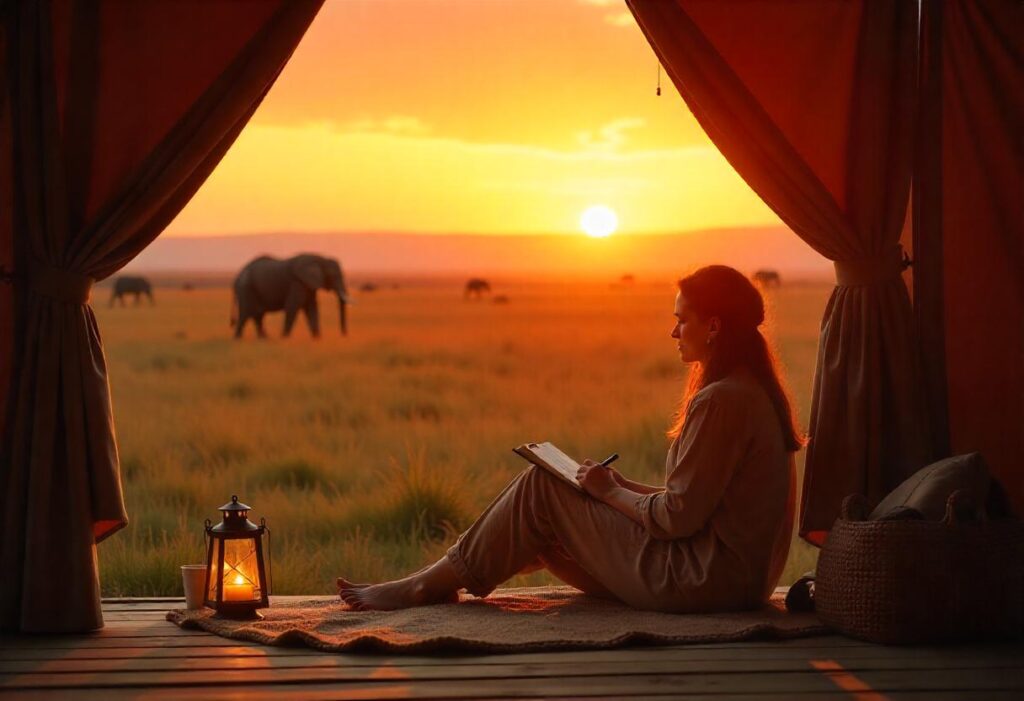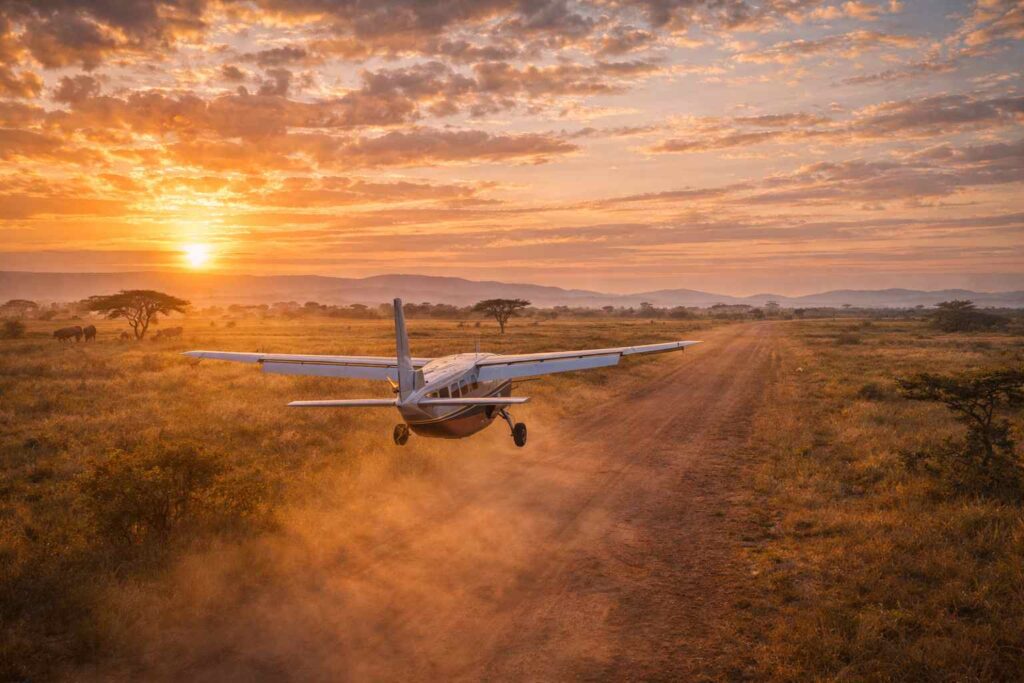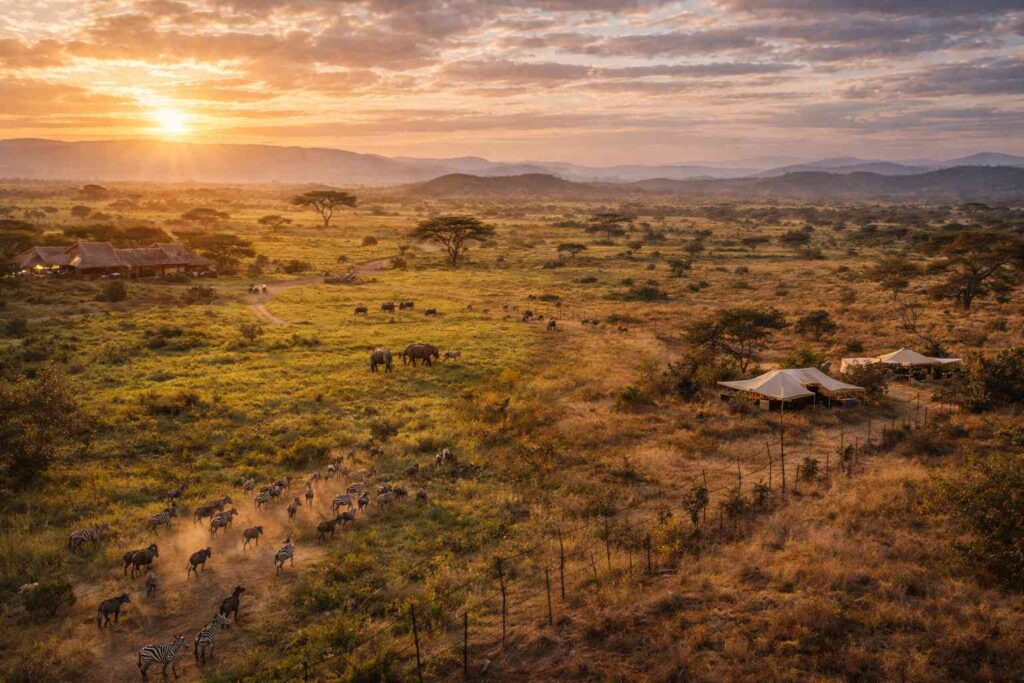Traveling solo through Africa may sound intimidating — but for many, it’s the most immersive, empowering, and rewarding way to experience a safari. Whether you’re seeking reflection, flexibility, or connection with nature on your own terms, a solo safari in Africa offers exactly that.
From safety concerns to social experiences and ideal destinations, here’s what solo travelers need to know before booking their trip into the wild.
Why choose a solo safari?
Travel on your terms
Going solo means complete freedom to choose your pace, destination, style, and focus — whether that’s photography, birding, relaxation, or adventure.
Deep connection with nature
Without distraction, your senses are heightened. Many solo travelers report stronger emotional responses to wildlife sightings and landscapes.
Meet like-minded people
You won’t be alone unless you want to be. Shared vehicles, communal dining, and friendly staff often lead to spontaneous friendships and rich conversations.
Is a solo safari in Africa safe?
Yes — with good planning and the right operators, solo travel in Africa is safe. Most safari destinations are well-regulated and staffed by professionals who understand security, hospitality, and wildlife management.
Tips to stay safe:
- Choose reputable lodges and tour operators with experience hosting solo guests
- Avoid self-driving safaris unless you’re highly experienced
- Communicate your plans clearly with your lodge or guide
- Trust your intuition, as you would when traveling anywhere solo
Best safari destinations for solo travelers
Kenya – Masai Mara or Laikipia
- Wide variety of midrange to luxury camps that welcome solo guests
- Strong guiding culture
- Easy logistics from Nairobi
- Some camps waive or reduce single supplements in green season
South Africa – Kruger Private Reserves or Madikwe
- Excellent for first-time solo travelers
- Malaria-free options (Madikwe, Eastern Cape)
- Great for short stays and easy internal flights
Botswana – Okavango Delta
- Best for those seeking a high-end, intimate solo escape
- Small camps with strong community feel
- Unique mokoro and boat safaris add depth to the experience
Tips for planning a solo safari
Book shared experiences
Opt for small group game drives, guided walks, or conservation-focused activities to interact naturally with other travelers.
Be smart about single supplements
Some lodges charge extra for solo occupancy — but others don’t, especially in shoulder seasons. Ask for waivers or solo-friendly properties.
Consider a solo safari tour
Companies like Yellow Zebra, Go2Africa, or Asilia offer tailored solo packages, including internal flights, transfers, and lodge coordination.
Stay social (if you want to)
Choose lodges with communal dining, group fire pits, and flexible activity options to connect when you feel like it.
What to pack for a solo safari
- Lightweight daypack for camera, water, and layers
- Personal medicine kit, since you won’t be sharing essentials
- Books, journal, or Kindle for downtime
- International SIM or eSIM to stay connected when needed
- Cash for tipping (ask the lodge for suggested amounts)
Final thoughts
A solo safari in Africa can be one of the most fulfilling trips you’ll ever take — peaceful, powerful, and deeply personal. Whether you’re chasing lions with your lens or sipping a sundowner in quiet awe, the experience is entirely yours. And that’s the beauty of going alone.
FAQs about solo safaris
Yes, when planned with reputable operators. Private reserves and guided camps are well-suited to solo travelers and prioritize safety.
Kenya, South Africa, and Botswana offer a great mix of safety, group activities, and solo-friendly lodges or packages.
Some lodges charge extra for solo occupancy, but many waive this fee during green season or offer discounts for solo guests.
Most likely. Shared game drives, communal dining, and group activities make it easy to connect with fellow travelers if you wish.
Essentials include a personal medicine kit, travel documents, SIM/eSIM for connectivity, and entertainment for quiet moments alone.






